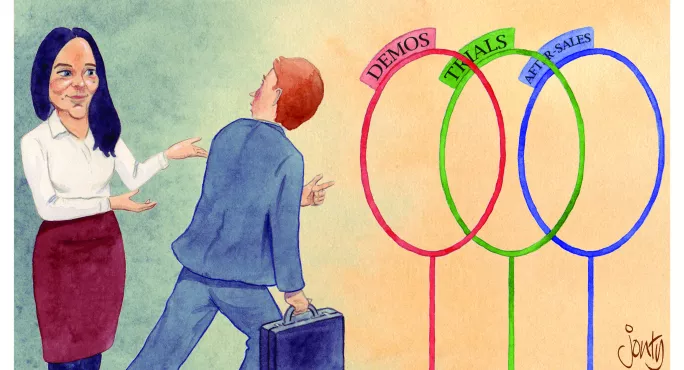A side show to the main stage extravaganza that has been life without levels in primary schools has been how ed tech companies now find it very hard to prove the worth of what they are selling. Sure, levels were not failsafe and claims such as “children made two levels of progress on average” never took context into account, but it was a starting point.
Some may celebrate this circumstance, claiming that it stops schools getting sucked into costly mistakes, but such a view would be short-sighted: there is lots out there that could make a real difference in schools, we just need to work out which products they are. Here’s a brief guide to doing just that.
Demos
One obvious way is for companies to be proactive about demoing their stuff. For me, good demos aren’t just to teachers in isolation, but are done with children so you can see how it works in practice. It means you can also get the kids’ feedback, too.
My most recent experience of this was Now Press Play (nowpressplay.co.uk) coming in to do a demo with our two Year 6 classes. They make immersive education resources, where each child wears a set of distinctive pink wireless headphones to listen to a story, complete with sound effects, in which they become the main character. However, it’s also very physical as they have to move about as instructed. It’s one of those things that all sounds a bit strange, and it wasn’t until I saw my Year 6s take part that I could see just how well it works - and how much they liked it. Without this, I wouldn’t be as quick to consider purchasing it.
My worst experience of a demo was sitting in my headteacher’s office with the rest of the senior management team, being spoken to about an online maths resource because the sales person couldn’t get the demo to work - it wasn’t a great start. We didn’t end up investing in that one because we didn’t get very good feedback from our teachers, who trialled it, either, but the poor demo didn’t help.
Trials
Talking of trials for online purchases, asking for a free one is an obvious way to start - but I often forget that I have free trials and they end before I’ve even taken a look. If you do sign up for a free trial, try to get access for a few members of staff so it’s not just down to you. Plus, the more feedback you have, hopefully the more you can trust the decision you make.
After-sales
A key question to ask is how much support the company will give you after purchase. Will they come in to train all your staff, or is that down to you? How often will they come in? What does setting it up involve? And what happens if something breaks?
Money is scarce in schools, so taking the time to go through these steps and doing as much research as possible - both online and among colleagues in other schools - is crucial. That way, you can make your decision feeling confident that it is an informed one.
Claire Lotriet is a teacher at Henwick Primary School in London. She tweets at @OhLottie and blogs at www.clairelotriet.com
This is an article from the 20 May edition of TES. This week’s TES magazine is available in all good newsagents. To download the digital edition, Android users can click here and iOS users can click here
Want to keep up with the latest education news and opinion? Follow TES on Twitter and like TES on Facebook




